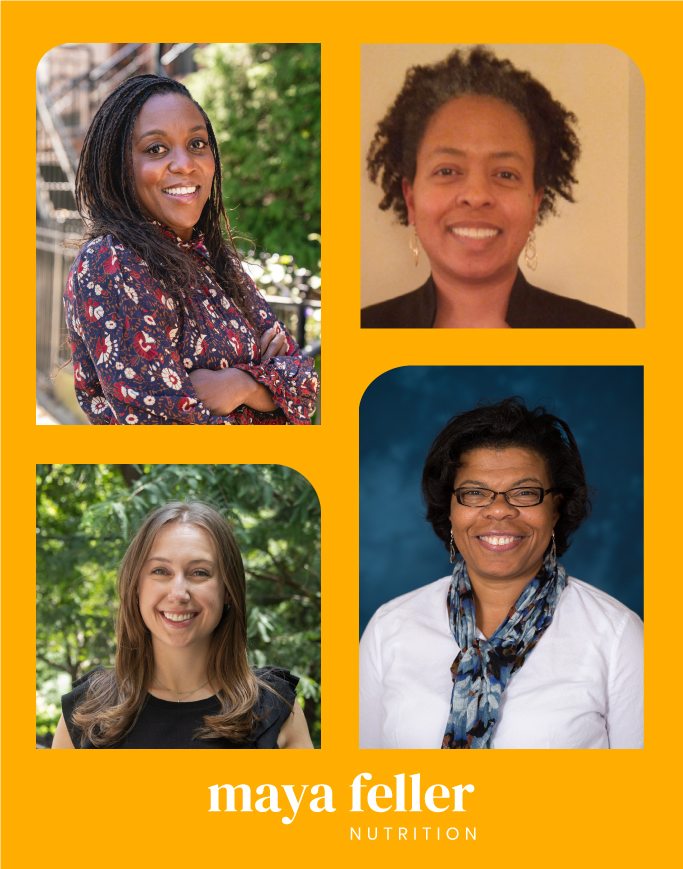Why work with a Registered Dietitian?
Start 2024 in clarity!
We’ve all heard that information overload leads to fatigue and brain fog. We are all bombarded with misinformation – it’s wild on these social streets. One moment, you are putting the password into your phone, and the next moment, you are opening TikTok or Instagram to be fed a 30-second video telling you only to eat 50lbs of fruit each day or not to drink oat milk because it will be your glycemic downfall and the start of your diabetes journey. What on earth are you to make of all this conflicting information, and is it even applicable to you? Who do you turn to for sensible, actionable, evidence-based, and personalized nutrition information? Did you know that working with a Registered Dietitian Nutritionist (RDN) can help not only stop the spread of misinformation but also help you gain better clarity on what your individualized nutrition needs are based on your culture, accessible foods, and the budget that you have at your disposal?
But first, what is a Registered Dietitian Nutritionist?
A Registered Dietitian Nutritionist (RDN) is an extensively trained food and nutrition professional. According to the Academy of Nutrition and Dietetics, RDNs must obtain a degree from an accredited dietetics program, complete a supervised practice requirement of at least 1,000 hours, pass a national exam to earn their credential and engage in continuing education opportunities to continue to advance their career. While all RDNs are nutritionists, not all nutritionists are registered dietitians. At this time, anyone can call themself a nutritionist; 48 out of 50 states have regulatory laws requiring RDNs to be licensed (LDN credential) to practice dietetics in the state.
How can you work with a dietitian?
At Maya Feller Nutrition, we make it easy. We accept several health insurances and are credentialed in NY, GA, and NC to offer nutrition services.
Why seek out a dietitian?
You are tired of the claptrap on social being spun across socials. You are ready to find nutrition solutions that center you. We can support you in your journey to set realistic and actionable goals by providing medical nutrition therapy for noncommunicable diseases such as diabetes and cardiovascular disease and nutrition education specific to these diseases. While the number of dietitians entering the field of nutrition and dietetics is increasing, note that all dietitians work from a trauma-informed lens of cultural humility. At Maya Feller Nutrition, we focus on personalized patient-centered care. your lived experience will be honored, and you will be invited to participate in developing your nutrition care plan.” Everyone has different lived experiences; therefore, a dietitian should inquire and honor those experiences when building rapport with the client in the partnership to develop the nutrition care plan.
How do you prepare for the most fruitful accommodations?
- Build a relationship with your dietitian first.
You may, or you may not receive nutrition education in the first session! The dietitian understands that you want to achieve your nutrition goals, but there is a process that differs from dietitian to dietitian to set and accomplish your goals. - After 1-2 sessions, evaluate whether or not your RDN can listen without judgment.
As stated before, not all dietitians operate in the same fashion. Therefore, instead of removing foods familiar to your culture, a dietitian may guide you in habit stacking, which involves building upon dietary behaviors that you already engage in to achieve your health goals. - To the best of your ability, try to be stationary in a quiet place to be fully present and avoid distractions you may encounter. Try to avoid driving or completing non-related tasks. What you put into the session will be a determining factor for what you get out of it. Therefore, to ensure that you have a successful session, reducing distractions may be necessary.
- Prepare questions to ask your dietitian ahead of time.
Questions can range from common questions you see online regarding nutrition to questions personalized to your goals. Preparing your questions ahead of time will help you feel fulfilled after the session.
What questions do you need to ask?
Similar to an interview, building a relationship with your dietitian is essential because the more that the practitioner gets to know you and vice versa to provide tailored nutrition advice.
- What is your nutrition philosophy?How do you provide individualized nutrition advice from patient to patient?
- How do you reduce bias in your practice daily?
- Would you consider yourself a culturally humble practitioner?
- What is your specialization?
If you are thinking about partnering with a dietitian, please feel free to go ahead and ask your questions. We can help you get started on your journey.
Thank you to Asha McElroy, MPH, who rotated through Maya Feller Nutrition, for her research and contributions to this article.


Leave a Reply